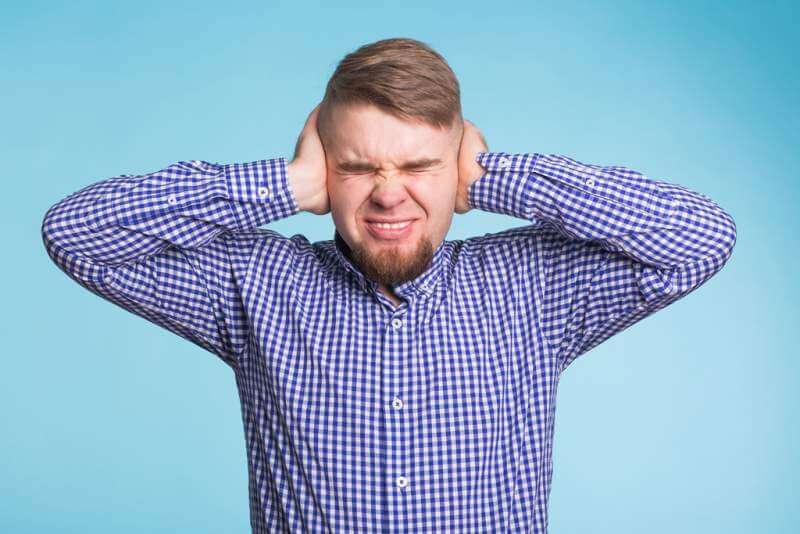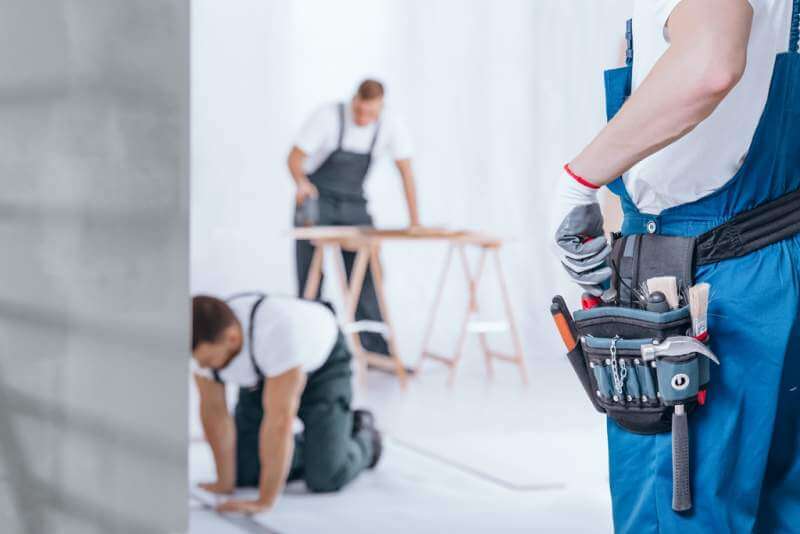As one of your five main senses, your hearing is something you should seek to protect every day. Hearing loss is an exceptionally common condition that affects millions of Americans. In fact, studies show that up to 10% of Americans suffer from some level of hearing loss and that many are unaware of it.
Hearing loss is characterized as a sudden or gradual decrease in your quality of hearing. It can occur for a variety of reasons, including aging, continued exposure to certain decibels, a sudden injury, or even certain medications.
The symptoms of hearing loss can be hard to spot. Often, hearing can fade so slowly that the person may fail to notice it in many cases. Sufferers may think that people are mumbling, that they need a new phone, or that their family needs to speak up. As long as most sounds are coming through, many people mistakenly believe that their heating is fine, however, just because you’re not profoundly deaf does not mean that your hearing isn’t failing.
Hearing loss is classified in the following different degrees:

Mild: Conversations that are one-on-one are still fine, but you may struggle to catch every word when background noise picks up.
Moderate: You may find yourself asking people to repeat themselves when having conversations in person or on the phone.
Severe: Following conversations becomes almost impossible unless you are using a hearing aid
Profound: You cannot hear other people when they are speaking, unless they speak extremely loudly and slowly. You require hearing aids or cochlear implant.
When you first start to lose your hearing, you may notice more issues with higher pitches—such as children or women’s vices—and the sounds produced when people say “S” or “F” may become garbled. You may also notice that:
- You have trouble following a conversation when multiple people are speaking
- You think other people are mumbling
- You respond incorrectly because you misunderstand what people are saying
- You hear noises like ringing, hissing, or roaring in your ears (this is known as tinnitus)
So, what causes this loss and how can you prevent it or minimize it?
Here are seven threats to your hearing and how you can protect it.
1. Headphones
 Headphone use has become ubiquitous as phones, iPods, and other personal listening devices gain popularity. Unfortunately, headphones are also a huge source of hearing damage across a wide range of ages. According to the World Health Organization, the louder your music is, the less time you should spend listening to it if you don’t want to risk permanent hearing damage. If you’re listening to your music at about 60% of the maximum volume, you should only listen to it for about 60 minutes a day. At maximum volume, you should only listen to it for about five minutes to avoid hearing damage.
Headphone use has become ubiquitous as phones, iPods, and other personal listening devices gain popularity. Unfortunately, headphones are also a huge source of hearing damage across a wide range of ages. According to the World Health Organization, the louder your music is, the less time you should spend listening to it if you don’t want to risk permanent hearing damage. If you’re listening to your music at about 60% of the maximum volume, you should only listen to it for about 60 minutes a day. At maximum volume, you should only listen to it for about five minutes to avoid hearing damage.
2. Cotton buds
 Also known by the popular brand name of Q-tips, cotton buds are often used to clean the ear of wax. However, doing this is often dangerous for the health of your ear and your hearing. Many doctors will recommend that you do not put anything smaller than your elbow in your ear. This is to prevent damage to the sensitive ear canal and ear drum. Cotton buds or any other small object inserted into the ear can scratch or even perforate the ear drum, causing permanent damage.
Also known by the popular brand name of Q-tips, cotton buds are often used to clean the ear of wax. However, doing this is often dangerous for the health of your ear and your hearing. Many doctors will recommend that you do not put anything smaller than your elbow in your ear. This is to prevent damage to the sensitive ear canal and ear drum. Cotton buds or any other small object inserted into the ear can scratch or even perforate the ear drum, causing permanent damage.
3. Medicines
 Certain types of medication, called ototoxic medicines, can actually damage the ear and causing hearing loss. This can happen quite quickly, and the first symptoms are often tinnitus and vertigo. If you notice these symptoms after starting new medication, call your doctor for clarification. Most of the time, these symptoms will clear when the medication is finished.
Certain types of medication, called ototoxic medicines, can actually damage the ear and causing hearing loss. This can happen quite quickly, and the first symptoms are often tinnitus and vertigo. If you notice these symptoms after starting new medication, call your doctor for clarification. Most of the time, these symptoms will clear when the medication is finished.
4. Noisy gyms
 It may seem like a Catch-22, since you go to the gym to be healthy, but a noisy gym can assault your ears with over 100-decibels of noise. From the blaring music, to the machines, to weights dropping, gyms can be an obscenely noisy spot. While you can’t do much about those dropping weights, you can ask the gym about turning down the music if it’s painfully loud to prevent damage.
It may seem like a Catch-22, since you go to the gym to be healthy, but a noisy gym can assault your ears with over 100-decibels of noise. From the blaring music, to the machines, to weights dropping, gyms can be an obscenely noisy spot. While you can’t do much about those dropping weights, you can ask the gym about turning down the music if it’s painfully loud to prevent damage.
5. Power tools
 If you’ve got the home improvement bug, you’ll want to make sure you spent a bit of money on high-end, noise cancelling headphones to protect your hearing. Hand drills hit 100 decibels, while chainsaw go to up 120 decibels (roughly the same levels as a jet engine at 100 feet). Protect your eyes, hands, and hearing whenever you’re working with power tools or you may end up never hearing again.
If you’ve got the home improvement bug, you’ll want to make sure you spent a bit of money on high-end, noise cancelling headphones to protect your hearing. Hand drills hit 100 decibels, while chainsaw go to up 120 decibels (roughly the same levels as a jet engine at 100 feet). Protect your eyes, hands, and hearing whenever you’re working with power tools or you may end up never hearing again.
6. Hunting
 If you’re a hunting aficionado, you should already be aware of just how dangerous firearms can be, but they are also very dangerous to your hearing. Rifles and shotguns can easily deafen a person who is standing nearby when they are fired. Whether you’re at the range or out in an open field with friends, anyone who has a firearm and anyone with them should be careful to keep their hearing protection on at all times, even when active shooting isn’t happening. If you struggle to understand what people are saying, you can purchase specially made headphones that cancel out all noise above a certain decibel while still allowing you to hear voices and other noises.
If you’re a hunting aficionado, you should already be aware of just how dangerous firearms can be, but they are also very dangerous to your hearing. Rifles and shotguns can easily deafen a person who is standing nearby when they are fired. Whether you’re at the range or out in an open field with friends, anyone who has a firearm and anyone with them should be careful to keep their hearing protection on at all times, even when active shooting isn’t happening. If you struggle to understand what people are saying, you can purchase specially made headphones that cancel out all noise above a certain decibel while still allowing you to hear voices and other noises.
7. Mowing the lawn or snow blowing
 If you didn’t already have enough reasons to dislike having to mow the lawn or use your snow blower, now we have one more for you: it can make you go deaf! A gas lawn mower or snow blower roars out a stunning 106 decibels of noise, which can easily damage your hearing. If you have some yard work to do, make sure you wear earplugs the entire time to prevent hearing loss. During winter, you can also opt for a good, old-fashioned shovel, which will also help you burn about 400 calories an hour.
If you didn’t already have enough reasons to dislike having to mow the lawn or use your snow blower, now we have one more for you: it can make you go deaf! A gas lawn mower or snow blower roars out a stunning 106 decibels of noise, which can easily damage your hearing. If you have some yard work to do, make sure you wear earplugs the entire time to prevent hearing loss. During winter, you can also opt for a good, old-fashioned shovel, which will also help you burn about 400 calories an hour.
